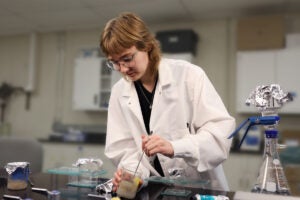AUSTIN, Texas—Even a single bout of exercise—30 minutes of walking on a treadmill—can lift the mood of patients suffering major depressive disorder. Researchers say the findings show immediate benefits, compared with the 8-to-10-week lag time for exercise regimens studied previously.
The study, published recently in Medicine and Science in Sports and Exercise®, the official journal of the American College of Sports Medicine (ACSM), divided 40 participants into two groups: a control group that rested quietly for 30 minutes and an exercise group that walked on a treadmill for 30 minutes. All had recently been diagnosed with major depressive disorder; none were exercising regularly or taking antidepressants. Participants completed two brief written surveys just before the test period and at 5-, 30-, and 60-minute intervals after their half-hour periods of rest or exertion.
“The question,” said lead researcher Dr. John Bartholomew, an associate professor in the College of Education at The University of Texas at Austin, “was whether an individual bout of exercise would provide benefit—or is the mood disturbance in depressed patients so great that a single bout of exercise can’t improve it? Most research with clinical populations of depressed individuals has instead focused on exercise as a treatment for the underlying disorder. We were looking at improving their mood in the short-term.”
Although both groups reported reductions in negative feelings such as tension, depression, anger and fatigue, only the exercise group in this study reported feeling good, as shown by elevated scores for “vigor” on one index and “well-being” on the other. “We were surprised at the extent to which quiet rest affected mood in the control group,” said Bartholomew. His explanation? “Quiet rest” for these participants still involved getting out of the house and interacting with people, which can be therapeutic in and of itself for those whose depression may cause them to withdraw into themselves. Despite this, only exercise resulted in a greater sense of vigor and well-being.
Bartholomew emphasized that a single session on the treadmill can offer only symptomatic relief, providing transitory improvement in mood rather than a change in diagnosis. However, he noted that “many people with depression attempt to self-medicate with alcohol, caffeine or tobacco to manage their daily routine. Low-to-moderate-intensity exercise appears to be an alternate way to manage depression—one that doesn’t come with such negative health consequences.”
What’s next? Bartholomew said future research might “look at why exercise provides these benefits so that we can better structure exercise to gain stronger effects.” Another challenge, he said, is “motivating depressed individuals to exercise. It’s hard enough to get people who are not depressed to become active.” In this case, the benefits occurred with a relatively low dose of exercise, which Bartholomew hopes will make it more likely that people with depression will exercise.
Bartholomew conducted the study with David Morrison and Joseph T. Ciccolo, who are graduate students at The University of Texas at Austin. All are associated with the Exercise Psychology Laboratory in the Department of Kinesiology and Health Education.
The American College of Sports Medicine is the largest sports medicine and exercise science organization in the world. More than 20,000 international, national and regional members are dedicated to advancing and integrating scientific research to provide educational and practical applications of exercise science and sports medicine.
Note: The preceding article was written and distributed by Dan Henkel, Medicine and Science in Sports and Exercise. For a complete copy of the Bartholomew research paper (Vol. 37, No. 12, pages 2032-2037) or to speak with a leading sports medicine expert on the topic, contact the Department of Communications and Public Information at 317-637-9200 ext. 117 or 132.
For more information contact: Dr. John Bartholomew, 512-232-6021, or Kay Randall, College of Education, 512-232-3910.



